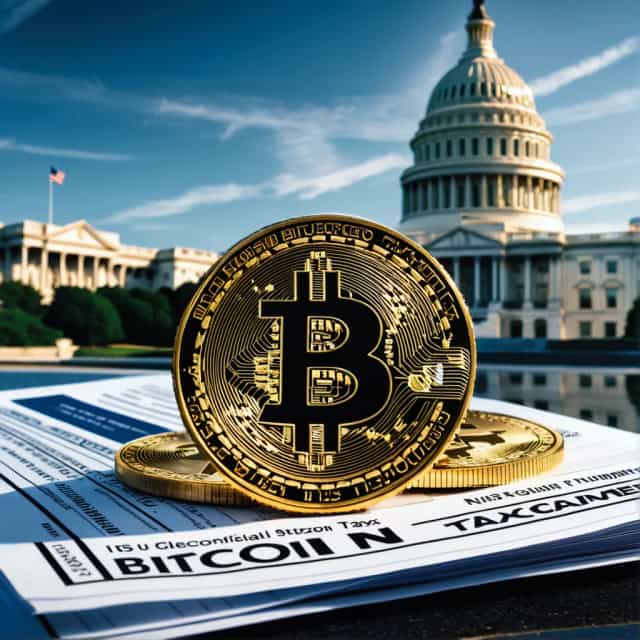
Image source: Block Media
UK Government Faces Legal Battle Over Seized Bitcoin: A High-Stakes Fight for Victim Compensation
The United Kingdom is embroiled in a complex legal battle following its controversial decision to retain Bitcoin worth approximately 7 trillion won (around $5.2 billion). This cryptocurrency was seized in 2018 as part of a Chinese investment fraud case. Victims of the scam have initiated civil proceedings to recover the confiscated Bitcoin, with the first hearing scheduled for January 2024. This pivotal case raises significant questions about asset ownership, victim restitution, and the government's stance on confiscated cryptocurrency.
The Fraud Scheme and Seizure of Bitcoin
Between 2014 and 2017, Zhimin Qian orchestrated a large-scale investment scam that ensnared over 120,000 Chinese victims. Fraudulently obtained proceeds were converted into Bitcoin, culminating in the seizure of 61,000 BTC by UK authorities. Following the arrests, Qian admitted to charges of asset possession and transfer fraud at London’s Southwark Crown Court, where her former assistant, Seng Hok Ling (also known as Gan Wen), had already been convicted in 2022.
This case highlights intense ownership disputes surrounding the seized Bitcoin, which victims claim represents their legitimate assets. With the cryptocurrency’s value surging since the time of its seizure, the stakes of this legal conflict are immensely high for all parties involved.
Legal Grounds for Victim Claims
The Crown Prosecution Service (CPS) has now initiated civil compensation proceedings at the UK High Court. Legal experts suggest that if victims can establish direct links between their losses and the confiscated Bitcoin, they stand on strong legal ground to reclaim their assets. According to Ashley Fairbrother, a partner at Edmonds Marshall McMahon, “UK law may not favor the government in retaining confiscated cryptocurrency. Victims are entitled to seek restitution under Section 281 of the Proceeds of Crime Act 2002.”
Section 281 provides a framework allowing victims to assert claims over seized or frozen assets. Fairbrother notes that utilizing trust law or alternative legal strategies may strengthen victims’ cases, offering flexibility in how claims are presented. Despite these provisions, she warns that a court ruling could still favor governmental retention of the Bitcoin.
One possible scenario involves applying the “pari passu” principle. Under this legal approach, funds would be distributed equitably among all victims based on their proportional stakes in the scam. However, executing such a method would require meticulous documentation from claimants, adding further complexity to the situation.
Debate on Valuation of Compensation
A highly contested issue centers on the method of valuing compensation for victims. Legal analysts predict that restitution may be calculated based on the monetary losses victims incurred at the time of the fraud, rather than the significantly inflated current value of Bitcoin.
Ashley Fairbrother pointed out a precedent in similar cases where courts opted to peg compensation to the monetary value of the victim’s losses, converted into British pounds (GBP). Such rulings could result in the UK government retaining the substantial appreciation in Bitcoin’s value, a possibility that has drawn sharp criticism from international legal representatives.
Law firms Fieldfisher and China-based GEN Law, representing the majority of victims, argue that the confiscated Bitcoin is the rightful property of its original owners. William Glover and Stephen Cartwright, partners at these firms, stated, “The Bitcoin seized in the UK indisputably belongs to the victims. The government has no legitimate authority to retain or dispose of it.”
Should the UK Hold or Sell the Bitcoin?
If the court rules in the government’s favor, questions will arise regarding the future use of the retained Bitcoin. Some government advisors suggest leveraging the funds to address public fiscal deficits, but this approach has sparked significant controversy. Critics cite past financial missteps, such as the UK’s heavily criticized sale of gold reserves in 1999, which resulted in substantial losses due to poor timing in a volatile market.
Any decision regarding the retained cryptocurrency will rekindle debates about the ethical and legal responsibilities of governments managing confiscated digital assets. This situation underscores a growing challenge for policymakers worldwide as jurisdictions grapple with legal, financial, and ethical dilemmas posed by the rise of cryptocurrencies.
Broader Implications of the Case
The outcome of this legal battle will likely set a precedent for how confiscated cryptocurrency is handled not just in the UK, but globally. Courts will need to address fundamental questions about asset ownership, valuation, and the redistribution of funds tied to crimes involving digital currencies. Moreover, this case could influence broader discussions about victims’ rights, government accountability, and the evolving role of cryptocurrency in international financial systems.
As the dispute unfolds, the implications of this case extend well beyond the individuals involved. Its resolution will serve as an important benchmark in the increasingly complex intersection of cryptocurrency regulation, fraud recovery, and asset forfeiture law.










